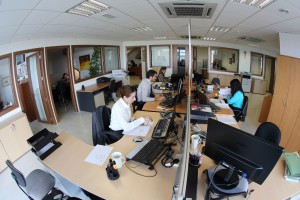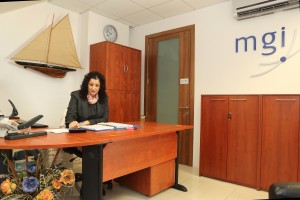Click Here to Read the Swedish Version of this publication
Serious gaming companies understand the importance of a reputable license. Being perceived by players as safe and credible will provide for greater credibility to online game sites and therefore assist in making them more attractive to potential players. This will in turn facilitate player acquisition and retention and consequently lowers the costs associated with such acquisition. As all operators know, the cost of player acquisition can be a determining factor in the success or otherwise of their online gaming operation.
Malta offers the Online Gaming Industry a package that few other jurisdictions can match. The Remote Gaming Regulations issued in early 2004 by the Lotteries and Gaming Authority continue to enhance on the existing rules and further enhances Malta’s reputation as a jurisdiction to be trusted by both players and operators. Thanks to such industry specific legislation and regulations, Malta has, over the past 7 years become the number one jurisdiction for online gaming operations.
The Authority will grant licenses to operate gaming offices to such persons who have demonstrated “appropriate business ability to conduct the betting office successfully”.
The new rules provide for four different classes of licenses, namely:
Class 1 – Casino style games, lotteries and slots
Class 2 – Betting , pool and sports betting
Class 3 – Online games such as poker, betting exchange, bingo, tournaments
Class 4 – Provision of online gaming platform
Licenses are issued for a minimum period of five years and may be extended for further periods of five years each.
Licensing Requirements
Obtaining an online gaming license in Malta is a serious affair. It is not an issue of just paying the required fee. There is a detailed application process and the applicant and the proposed operation is subjected to detailed reviews aimed to ensure they meet the legal requirements as provided by local and international legislation and directives. In the long run, such a rigorous licensing process is of benefit to the operation itself. Keeping away the problematic operators can only enhance the reputation of our jurisdiction, which in turn will reflect on the local licensed companies
The licensing procedure is quite extensive but thanks to the professionalism of the persons involved, this procedure should not take more than two to three months.
The application for a gaming license requires the following documentation:
1. Detailed profile of the promoting company
2. A copy of the last audited accounts of the promoting company, where applicable
3. A business plan indicating the economic activity – including job creation if any – which will be carried out from Malta
4. A plan of the premises earmarked for adoption as a call centre – when applicable
5. Personal details of all shareholders having more than 5% interest in the local operations.
6. A detailed narrative of the software proposed to be used by the operator.
Basic Requirements
1. Both hardware and software involved in the operations must be located in Malta, and there exist companies that can provide this service without the need for the licensee to obtain its own hardware or premises they so require.
2. All licenses are issued only to companies registered in Malta
3. The company must nominate one of its directors as KEY OFFICIAL who will act as the main communication channel between the Authority and the Operating company.
Licence Fees
The costs associated with an online gaming license application are:
- Payable on submission of the license – Euro 2,350
- Payable for software review – Euro 2,350
- Payable once the license is issued – Euro 7,000
- Payable every year thereafter – Euro 1,200
Taxation
Once a gaming license is obtained, gaming tax will become payable to the authority from the date the operations goes LIVE.
The gaming tax varies depending on which class of license one obtains as follows:
Class 1 – fixed at Euro 4,650 monthly for the first 6 months and Euro 7,000 per month thereafter.
Class 2 – Betting operation – 0.5% (half of one percent) on gross amounts of bets
– Betting Exchange – 0.5%(half of one per cent) on net winnings
– Pool Betting – 0.5%(half of one per cent) on aggregate stakes paid.
Class 3 – 5% of net income
Class 4 – fixed at NIL per month for first 6 months, at Euro 2,330 monthly for next six months and at Euro4,660 monthly thereafter.
Company Registration
A Malta based gaming operation must be carried out by a Malta registered company as specified in Regulation 4 of the Remote Gaming Regulations (LN176/2004). Gaming companies are not subject to any special tax regime. In fact, online gaming operations may be carried out through a normal limited liability company registered in Malta under the Companies’ Act.
Taxation of Online Gaming Companies
Companies registered in Malta are taxable at the rate of 35% . However in view that Malta has the INPUTATION system of taxation, wherein tax paid by the company is transferred to the shareholders when a dividend is paid, shareholders are entitled to claim back any excess of tax paid by the company over their own personal tax rate. In the case of non resident shareholders such personal tax rate is just 5% which means that such non resident shareholder has a right of refund of 6/7ths of the tax paid by the company.
In addition, Malta does not levy withholding tax on any outbound distributions of dividends. The refund system and the absence of a dividend withholding tax ensures that profits derived by gaming companies are taxed and repatriated outside Malta in the most efficient manner.
Other Legal Issues
Malta became a member of the European Union on 1st May, 2004. Therefore companies registered in Malta have the right to operate in the Single European Market which itself is covered by various directives. Unfortunately online gaming is still the subject of heated discussions between member states and currently the industry is awaiting the results of the GREEN PAPER issued in 2011. Therefore every operator is encouraged to familiarize himself with the legislation of his target markets.
Obtaining a Malta online gaming license does not exclude you from complying with the laws of other countries
What Malta Offers
Fiscal Benefits
- Low taxation on gaming operations in Malta
- Tax leakage in Malta may be as low as 5%
- A wide network of double taxation agreements
Other Advantages
- A sound legal and financial system
- A sound ICT infrastructure
- Legislation on betting and e-commerce
- Strong regulatory bodies
- A solid international reputation
- Skilled work force
- Low cost of doing business
- State of the Art telecommunications facilities
- An internal market of circa 500 million EU citizens.
Disclaimer
The above information is being provided as a general guide only and should not be considered as a substitute for professional advice.
George Farrugia is the founding partner of MGI Malta. He can be reached at george@mgimalta.com










